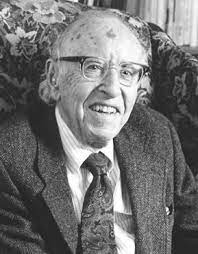Riesman, David

Bio: (1909-2002) American sociologist and jurist. David Riesman studied law at Harvard Law School. He first worked in the judiciary and the private sector, then in 1946, he began teaching sociology at the University of Chicago and later moved to Harvard.
Riesman is best known for his book A Lonely Crowd: A Study of the Changing American Character (1950), which he co-authored with Nathan Glazer and Reuel Denney. This book quickly became very popular and to this day remains the best-selling sociological book (except sociology textbooks). In the book, Riesman and colleagues explore the history of social development. Social character is a psychological feature that is common to all members of society and is a consequence of living in similar social and material circumstances. Riesman's conception of the social character was greatly influenced by the social psychology of Erich Fromm. Social character is the basis for adapting individuals to society and each other.
Riesman concluded that throughout history, three different social characters have developed: 1) „tradition directed“, 2) „inner directed“ and 3) „other directed“. Changes in social characters are associated with three demographic trends: tradition directed societies have high birth rates and "high growth potential"; inner directed societies have birth rates that allow for „transitional population growth“; while other directed societies have "initial population decline". In addition to demographic changes, changes in social character are also affected by social, technological, institutional, and informational changes. In the historical sense, the social character of the tradition oriented person first developed. This social character arises in traditional societies that are organized around family and kinship relations; social relations and institutions are stable; and there are very clear rules of social behavior, which must be strictly adhered to. In these societies, levels of individuality and innovation are low, and change is rare.
The tradition oriented social character started fading due to great changes that happened after the end of the Middle Ages, of which the most important were industrialization and the Protestant Reformation. The tradition directed personality could not survive in the conditions of population increase, great social and geographical mobility, and new forms of work. The changes that have taken place have conditioned the emergence of an inner directed social character. This social character is shaped by the internalization of the general rules and goals that the parents instill in the child. The inner directed social character has general rules of conduct that are meaningful and adaptable enough to provide the opportunity to cope with rapidly changing external circumstances, essentially creating a "psychological gyroscope" that always gives the right direction. A true description of this character can be found in Max Weber's description of Protestant ethics.
With the stabilization of population growth and the beginning of the bureaucratization of work, came the emergence of the other directed social character, which first developed among members of the "new middle class" of bureaucrats and professionals. This character adapts to the attitudes and behavior of other people, and the goal is to be conformist and live in harmony with others. This kind of person is very socialized but is not stable, because it changes following the changes in social trends. Riesman believes that a person who is other directed is, in fact, a lonely person who strives to overcome loneliness by joining a group and adopting a group mentality. However, this person cannot overcome the loneliness within the crowd, because he did not build his autonomy.
Riesman sees three possible ways for a person to adapt to the pursuit of conformism: 1) adapting to others, 2) anomie, and 3) building personal autonomy. Autonomy requires the possession of self-awareness and the ability to decide whether to live in accordance with the dominant social character, but without falling into a state of anomie. Modern society provides a wide range of possible ways of living, working, and spending free time, which gives a great opportunity to build autonomy. In his later work, Riesman will partially revise some of his views and conclusions, especially in the context of the dependence of social characters on demographic change.
Later in his career, Riesman also dealt with other topics, mostly higher education, which he studied in several of his books. In these books, Riesman explores how intellectual diversity in universities has been reduced and how some vulnerable groups have been systematically thwarted in their efforts to gain academic education.
Fields of research
Bureaucracy Crowd Demography Education Individualism Innovation Institution and Organization Middle Class Mobility, Social Personality Psychology Suicide Technology Tradition AnomyTheoretical approaches
Public Sociology (Applied Sociology)Main works
A Lonely Crowd: A Study of the Changing American Character (1950);
Faces in the Crowd: Individual Studies in Character and Politics (1952);
Individualism Reconsidered (1954);
Constraint and Variety in American Education (1956);
Abundance for What? (1964);
The Academic Revolution (1968);
Education and Politics at Harvard (1975);
Adam Smith’s Sociological Economics (1976);
The Perpetual Dream: Reform and Experiment in the American College (1978);
A Lonely Crowd, Revised Edition (1989);
On Higher Education (1998).

